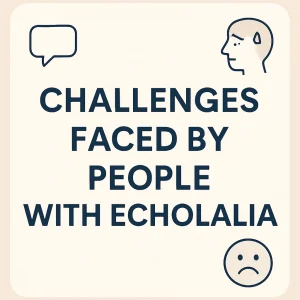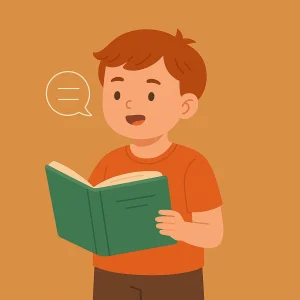U Words That Help Kids Improve Their Vocabulary
Last Updated: September 4, 2024
Expanding vocabulary is like opening a world of possibilities for kids. It’s not just about learning new words; it’s about giving them the tools to express themselves more clearly, understand the world around them, and feel confident in conversations. Imagine the excitement of discovering new ‘U’ words like “umbrella,” “under,” or even “unicorn”! These aren’t just random words; they can turn into magical keys that help kids unlock better communication and spark their curiosity.
Learning words that start with ‘U’ can be a fun and engaging way to boost a child’s vocabulary. It’s all about making language learning feel like an adventure, where every new word is a discovery waiting to be made. This process isn’t just beneficial for their language skills—it also builds confidence. When kids know the right words, they’re more likely to speak up, ask questions, and connect with others. Plus, improving vocabulary at an early age sets a strong foundation for reading and writing skills, making academic learning more accessible and enjoyable.
Why Focus on U Words?
You might be wondering, why specifically focus on U words? Well, U words offer a unique opportunity for kids to learn vocabulary that isn’t just useful but also fun and engaging. Unlike more common letters, U words often introduce kids to concepts and objects that are a bit different, making them memorable and intriguing. Think about words like “unique,” “under,” or “upside.” These aren’t just words—they’re gateways to new ideas, actions, and descriptions that can spark a child’s imagination and expand their ability to communicate.
Focusing on specific letters like ‘U’ can make vocabulary learning more manageable and less overwhelming for kids. When children tackle the alphabet one letter at a time, it breaks down the learning process into smaller, bite-sized pieces. This approach helps kids feel accomplished as they master each set of words, boosting their confidence along the way. It’s like building a puzzle—each letter they learn is a piece that brings the whole picture of language together.
By honing in on “U” words, you create a focused learning path that makes vocabulary building both systematic and enjoyable. This targeted approach helps children grasp the nuances of language, enhancing their reading and writing skills. Plus, it turns what might feel like a daunting task into a series of fun, achievable steps. Whether it’s through reading, storytelling, or playful activities, learning U words becomes a delightful adventure rather than a chore.
Also read: Help Kids Talk: 10 Easy Speech Therapy Techniques at Home
List of Simple U Words for Kids
Ready to dive into some fun U words? Here’s a list of simple and easy-to-understand U words that are perfect for kids. Each word comes with a brief description to help them grasp the meaning quickly and start using these words confidently in their conversations.
Quick Reference: U Words and Definitions
| Word | Definition |
|---|---|
| Umbrella | A tool used to keep you dry when it rains, usually made of fabric stretched over a folding frame. |
| Up | Moving in a direction toward the sky or a higher place, like when you jump or lift your arms. |
| Under | Being below or beneath something, such as hiding under a table or sitting under a tree. |
| Unicorn | A mythical creature that looks like a horse with one magical horn on its forehead, often seen in stories and fairy tales. |
| Utensil | Tools used for eating or cooking, like a fork, spoon, or knife, making it easier to handle food. |
| Uniform | A special set of clothes worn by people in the same group, like school uniforms or team outfits. |
| Uphill | Going up a slope or hill, such as when walking up a steep road or path. |
| Useful | Something that helps you do a task more easily, like a flashlight is useful in the dark. |
| Uncle | The brother of your mom or dad; often a fun and familiar family member who enjoys spending time with kids. |
| Utter | To speak or say something, like uttering a greeting or sharing a thought aloud. |
Fun Activities to Teach U Words
Teaching “U” words to kids can be an exciting and interactive experience. By incorporating visual and auditory cues, storytelling, and engaging games, you can turn vocabulary learning into a fun activity that kids look forward to. Let’s explore some creative ways to help children grasp and remember U words effortlessly!
1. Visual and Auditory Cues
Visual and auditory cues are fantastic tools for helping kids remember U words. Using images, sounds, and even gestures can make words come alive. For instance, when teaching the word “umbrella,” show a picture of an umbrella and mimic opening it up. You can also play sound effects like the patter of rain to make the word association stronger. This multi-sensory approach not only makes learning more engaging but also helps solidify the connection between the word and its meaning in a child’s mind.
2. Storytelling and Reading
Incorporating “U” words into simple stories or reading sessions can be a magical way to enhance vocabulary. Create short, fun stories where U words play a starring role. For example, you could tell a tale about a “unicorn” going “up” a hill with an “umbrella” on a rainy day. Reading books that feature U words prominently or even making up your own stories can make these words stick. This method not only helps with word recognition but also encourages kids to use their imagination, making the learning process enjoyable and memorable.
3. Games and Puzzles
Kids love games, and incorporating U words into activities like word searches, flashcards, or matching games can make vocabulary practice feel less like learning and more like playtime. Create a word search puzzle where they have to find U words hidden among other letters, or use flashcards with pictures on one side and the word on the other. Matching games, where kids pair a U word with its corresponding image or definition, can also reinforce learning. These activities keep kids engaged and motivated, turning what might otherwise be a tedious task into a fun challenge.
Tips for Parents and Educators
Helping kids learn U words doesn’t have to be a daunting task. With a few simple tips, parents and educators can make vocabulary building a consistent and rewarding part of everyday life. Here are some practical strategies to keep kids engaged and excited about learning new words.
1. Consistency is Key
One of the most effective ways to reinforce learning is through regular practice. Consistency helps cement new vocabulary in a child’s mind, turning unfamiliar words into familiar friends. Set aside a few minutes each day to practice U words—whether it’s through quick flashcard reviews, a short game, or reading a book that features U words. The key is to make it a regular, yet low-pressure, part of their routine. Consistent exposure and practice will help kids retain what they’ve learned and feel more confident using new words in conversation.
2. Positive Reinforcement
Children thrive on encouragement, so make sure to praise their efforts when they use U words correctly. Positive reinforcement, like a high-five, a sticker, or just saying, “Great job using the word ‘umbrella’ today!” can go a long way in boosting their motivation. When kids feel good about their progress, they’re more likely to stay engaged and eager to learn. Remember, it’s not just about getting the words right; it’s about building confidence and fostering a love for learning.
3. Incorporate Words into Daily Conversations
One of the best ways to make vocabulary learning practical is by using U words in everyday conversations. Talk about the weather and how you might need an “umbrella,” or discuss how your food is “under” the table. You can even make it a fun challenge—ask your child how many U words they can spot during the day. By integrating these words into daily life, you’re helping kids see their real-world application, which makes learning more meaningful and less abstract.
Common Challenges and How to Overcome Them
Learning new vocabulary can sometimes come with its own set of challenges, but with the right strategies, these hurdles can be easily overcome. Let’s explore some common obstacles kids might face when learning U words and how you can help them succeed.
1. Difficulty Remembering Words
It’s normal for kids to struggle with remembering new words, especially when they’re just starting out. One effective way to tackle this is by using mnemonic devices. Mnemonics are simple memory aids that make it easier to recall information. For example, to remember the word “umbrella,” you might associate it with the phrase “Up in the sky when it rains.” You can also create fun visual associations, like drawing an umbrella next to the word. The goal is to connect the word with something memorable, making it stick in their minds longer.
2. Pronunciation Issues
Pronouncing U words can be tricky, especially for younger kids who are still developing their speech skills. Simple exercises can help improve pronunciation. Start by breaking the word into smaller sounds or syllables and practice saying each part slowly before putting it all together. For example, for the word “unicorn,” practice saying “u-ni-corn” slowly, then faster as they get more comfortable. Repetition is key, so encourage kids to repeat the words several times, and gently correct them if needed. You can also turn this into a fun activity by making silly faces in the mirror while practicing, which helps with muscle memory and makes learning more enjoyable.
3. Lack of Interest
Keeping kids engaged can be a challenge, especially when learning starts to feel repetitive. To spark their interest, try incorporating interactive tools like apps or games that focus on vocabulary building. There are plenty of educational apps designed specifically to make learning fun through quizzes, flashcards, and even virtual rewards like badges or stars. Another great way to maintain interest is by setting up a reward system. For example, after learning five new U words, let them pick a small prize or choose the next family game. By making vocabulary learning interactive and rewarding, kids are more likely to stay motivated and excited about the process.
Benefits of Learning U Words for Kids
Learning U words offers more than just a fun way to explore the alphabet—it provides kids with essential tools that can significantly enhance their communication skills, academic performance, and overall confidence. Let’s dive into the key benefits of adding U words to your child’s vocabulary.
1. Improved Communication Skills
Expanding vocabulary with U words helps kids express themselves more clearly and accurately. When children have a broader range of words at their disposal, they can describe their thoughts, feelings, and experiences more effectively. For example, knowing the word “under” allows them to describe positions and locations better, while a word like “unique” helps them express differences and individuality. This not only makes daily conversations richer but also supports their ability to understand and connect with others, which is a crucial skill in both personal and social settings.
2. Positive Impact on Academic Performance
A strong vocabulary is directly linked to better reading and spelling skills, which are foundational for academic success. By learning U words, kids can improve their ability to decode new words when reading, making the reading experience smoother and more enjoyable. Additionally, familiarizing themselves with a diverse set of words enhances spelling accuracy, as they begin to recognize patterns and sounds in the English language. This can lead to improved performance in language arts, which often translates to greater overall academic achievement.
3. Boost in Confidence
One of the greatest benefits of expanding vocabulary is the boost in confidence that comes with it. As kids learn new words and begin to use them correctly, they feel more competent and proud of their abilities. This confidence can extend beyond language skills, impacting their willingness to participate in class, share their ideas, and take on new challenges without fear. When children know they can express themselves well, they’re more likely to engage in conversations, ask questions, and even help others, making them active and enthusiastic learners.
Conclusion
Adding U words to a child’s vocabulary isn’t just about learning new words; it’s about helping them communicate better, do well in school, and feel more confident. U words are fun and easy to learn, making them a great way to start building a child’s language skills. Using simple tips like visual cues, storytelling, and games can turn learning into an enjoyable activity. These small steps can make a big difference in how kids understand and use language every day.
Parents and educators play an important role in making this journey exciting. By practicing U words regularly, giving praise, and using these words in daily conversations, you can make learning both fun and effective. Remember, learning new words is a continuous journey, and starting with U words is just the beginning. Keep exploring and encouraging children to discover more words along the way. For more tips and support, Wellness Hub offers helpful resources to make vocabulary building easy and enjoyable. Let’s work together to make learning a happy adventure for every child!
Frequently Asked Questions:
1. What are some easy U words for kids to learn?
Some simple U words for kids include “umbrella,” “up,” “under,” “uncle,” and “unicorn.” These words are easy to understand and can be fun to use in daily conversations.
2. How can learning U words improve my child’s vocabulary?
Learning U words helps expand a child’s vocabulary, making it easier for them to express themselves, improve communication skills, and perform better in reading and spelling tasks at school.
3. What activities can help teach U words to kids?
Activities like using visual and auditory cues, storytelling, reading sessions, and engaging games like word puzzles and flashcards can make learning U words fun and effective for kids.
4. Why is it important to use U words in everyday conversations?
Using U words in daily conversations helps kids see the practical use of their new vocabulary, reinforcing their learning and making it more relevant and memorable.
5. How can I help my child if they struggle with remembering U words?
If your child struggles to remember U words, try using mnemonic devices, such as making up simple phrases or visual associations to help them remember. Regular practice and positive reinforcement can also boost their retention.
6. What should I do if my child has difficulty pronouncing U words?
To help with pronunciation, break down U words into smaller parts or syllables and practice saying them slowly. Repeating the words several times and turning the practice into a fun activity can also improve their pronunciation skills.
7. How can I keep my child interested in learning U words?
To keep your child engaged, try using interactive apps, setting up a reward system, or incorporating games that make learning U words fun and rewarding. Keeping the activities light and playful can maintain their interest.
8. How do U words help in boosting a child’s confidence?
As children learn and use new U words correctly, they gain confidence in their ability to communicate and participate in conversations. This confidence can extend to other areas of learning and social interactions.
9. Can learning U words improve my child’s academic performance?
Yes, expanding vocabulary with U words can enhance reading and spelling skills, which are important for academic success. A strong vocabulary foundation helps children better understand and engage with schoolwork.
10. Where can I find more resources to help my child learn U words?
For more resources and guidance on helping your child learn U words, you can explore the tools and tips available at Wellness Hub, where language learning is made easy and fun for kids.
About the Author:
Anuradha Karanam
Speech-language pathologist (7+ years of experience)
Anuradha Karanam is a skilled speech-language pathologist with over 6 years of experience. Fluent in Tamil, Telugu, Hindi, and English, she specializes in parent counseling, speech sound disorders, fluency assessment, and speech-language evaluations. Anuradha excels at working with children with developmental disorders, offering creative and effective therapy programs. Currently, at Wellness Hub, she holds a BASLP degree and is registered with the RCI (CRR No A85500). Her patience, ambition, and dedication make her a trusted expert in her field.
Book your Free Consultation Today
Parent/Caregiver Info:
Client’s Details:
* Error Message








